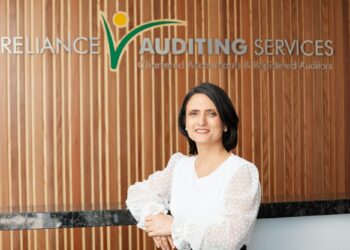In an online article, Smarter SMSF chief executive Aaron Dunn said it is significant that the discussion paper released by Treasury on the Review of the Tax Practitioners Board acknowledged that the current framework for accountants and advisers isn’t working.
“It is staggering to think that a licensed financial adviser has obligations across eight government agencies with very little centralisation to support the ever-increasing compliance function against a backdrop of protecting consumers,” Mr Dunn said.
“While the agencies interact with each other, the discussion paper acknowledges overlap and seeks views on alternate models.”
One of the options suggested in the paper is to allow financial advisers that provide incidental tax advice to not have to be registered with the TPB.
“As a result, such a concession would effectively reinstate reciprocal arrangements for accountants that permit incidental financial advice that was repealed from 1 July 2016,” he said.
Mr Dunn noted there has been a continued drop off of accountants within the limited licensing regime.
“The requirements under FASEA that require individuals to sit a further competency exam that covers areas that they don’t even have scope to discuss under their limited licence have become a step too far, even where credits have been provided by their professional bodies in many instances,” he said.
“Many good advisers are simply saying it’s too much and exiting the system.”
The outcomes from introducing limited licensing “have clearly not achieved their policy intent”, he said, and the TPB review provides a perfect opportunity to re-explore the policy settings to ensure that advice is not only encouraged but is readily available for those who need it at different stages of life.
Mr Dunn said accountants and administrators could instead become regulated as approved SMSF service providers or agents where they service a certain number of funds through either ASIC, the TPB or otherwise.
“Importantly, this is not to exclude firms from administering SMSFs, but based upon a threshold — let’s say, 20 funds — you would need to sit a competency exam to demonstrate a relevant skill set to continue to service SMSF trustees,” he explained.
“Only through the accredited process would individuals be able to rely upon any specific exemptions to discuss strategic issues such as making contributions, starting pensions and the like.”
A model like this, he said, would be the “perfect carrot and stick” approach, providing accountants with some more flexibility to engage in conversations with their SMSF clients, while ensuring the regulator has greater powers to take action in the event of inappropriate outcomes.
“With the ATO currently spending a greater focus on trustee education for new entrants, I still hold the view that we can improve on getting our professional backyards in order first,” Mr Dunn said.
“A by-product of a profession governed by higher standards is a better and more educated trustee entering the SMSF sector, without any mandated obligations that act as a barrier to entry. I’m all for encouraging the understanding of responsibilities by trustees, but I think a mandated outcome plays perfectly into the hands of the APRA-regulated sector.”



mmm. So saying that just because someone administers more than 20 funds automatically demonstrates that they have more skills than someone that doesn’t? REALLY??? Sounds like yet another attack on small accounting firms –
Its this type of thinking that got us into the whole limited licensing mess in the first place.